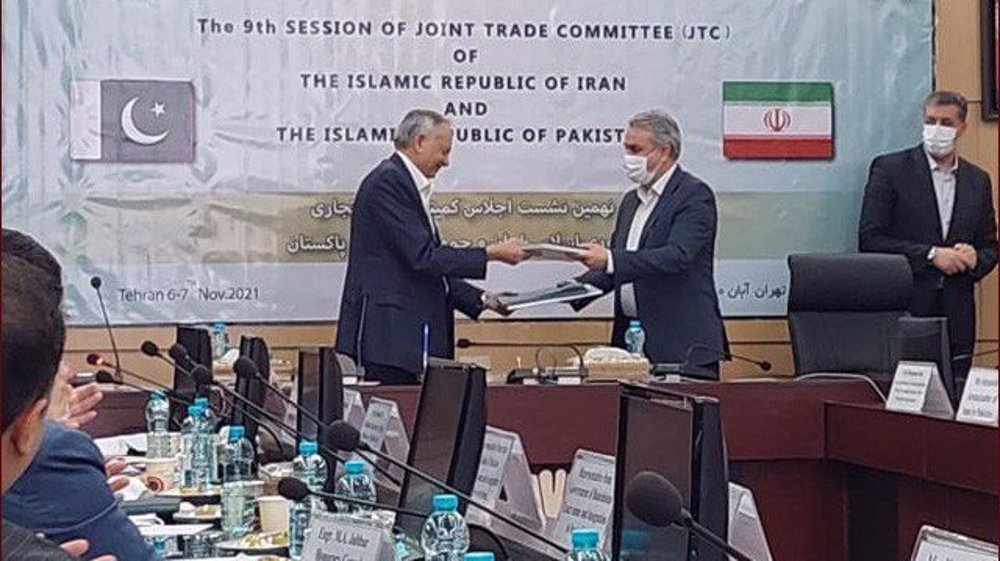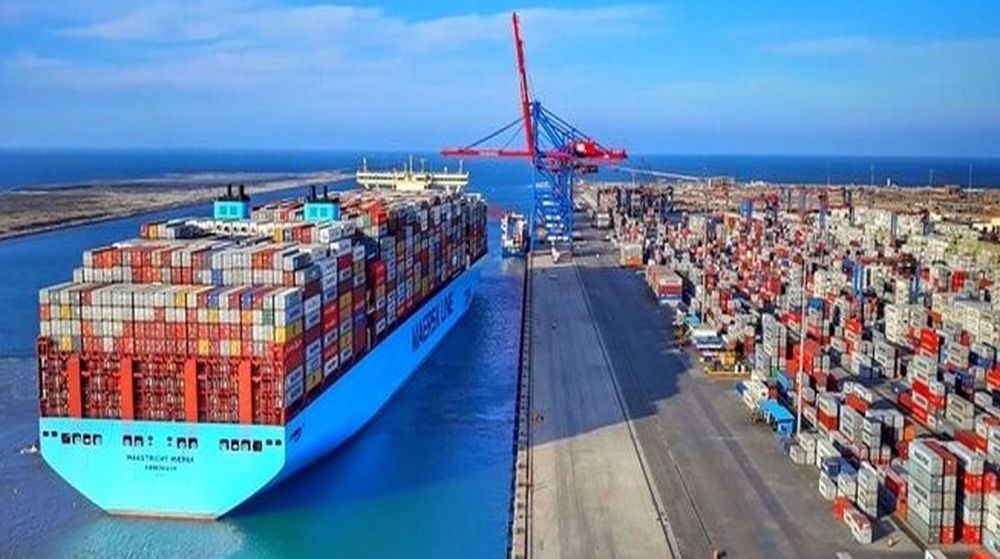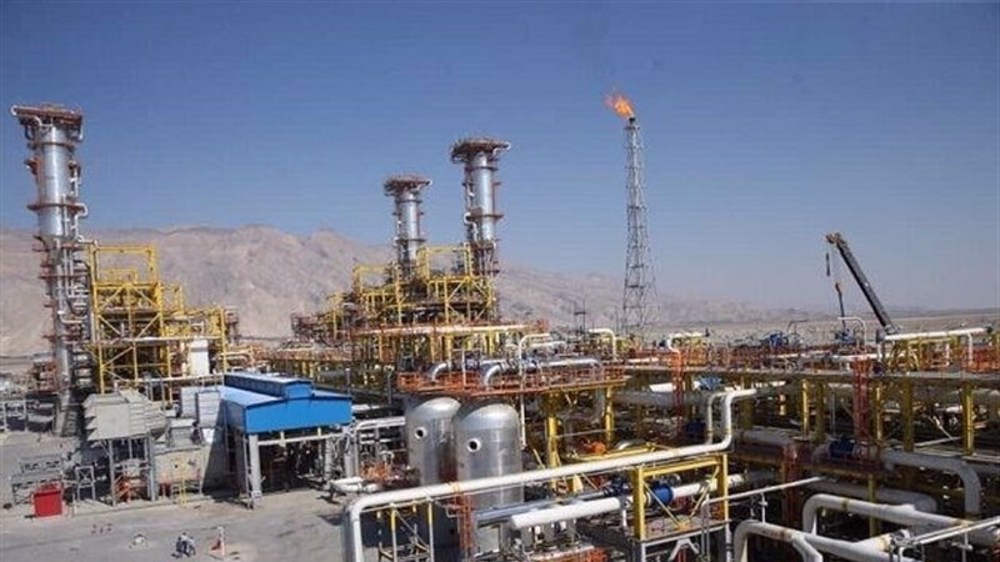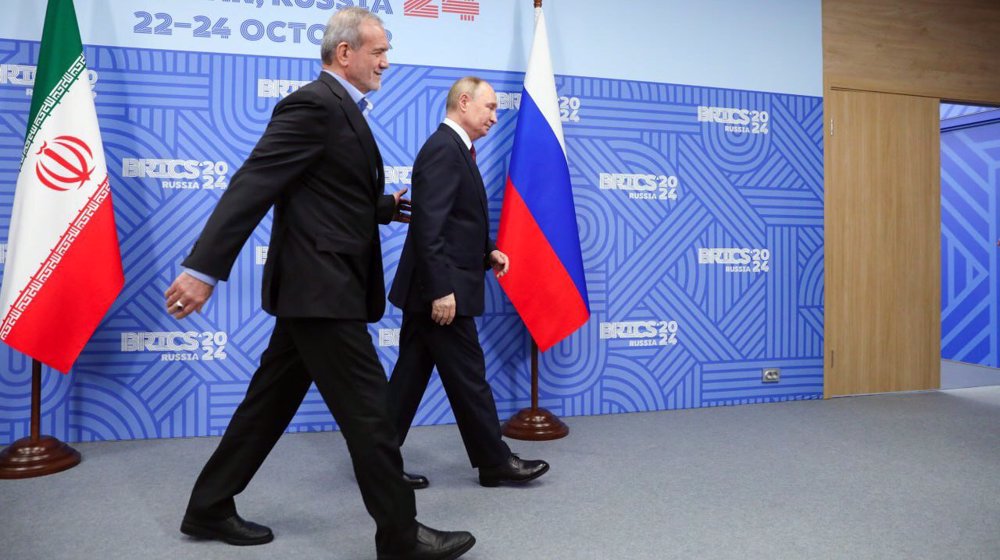Iran, Pakistan look to new era in trade with barter deal
Iran and Pakistan have signed their first barter trade agreement to exchange Pakistani rice with Iranian LPG, marking a watershed in a quest to overcome the biggest hurdle to business between the two big neighbors.
For trade and investment, Iran's wings have been clipped by the most draconian US sanctions, forcing the Islamic Republic and its trade partners to work out alternative conduits in the absence of the banking channel.
But such channels are not as simple and straightforward as the banking system and require a lot of balancing act for compatibility and compliance with the needs of the countries.
Countries which test them usually do it with much discretion on an exploratory basis, but the dividends could be huge in the long run based on how they work.
That is the prospect which Iran and Pakistan are looking for after they firmed up their first barter trade in Tehran where their Joint Trade Committee met with the visit of Adviser to Prime Minister of Pakistan for Commerce and Investment Abdul Razak Dawood.
"What I said to the Iranian side was, let's start on a very small level. We export rice and import LPG; keep it simple let's see how it works. When we become more experienced, we can increase more products," he told us in an exclusive interview.
Other than the barter trade in rice, the two sides agreed on construction of border markets, and movement of trucks under the Convention on International Transport of Goods (TIR) cooperation for Pakistan to reach European and Caucasian markets and for Iran to access the Chinese market.
I'm happy to announce that at the conclusion of meeting of Joint Trade Committee today, Pakistan 🇵🇰 and Iran 🇮🇷 have a agreed on Barter trade in Rice, construction of Border Markets, movement of Pakistani trucks under TIR and Customs cooperation. pic.twitter.com/dRwMq8wMJ0
— Abdul Razak Dawood (@razak_dawood) November 7, 2021
They also sorted out their "grievances" with regard to exports of agricultural products and decided to add new items to their exchange list.
"Iran had grievances against Pakistan on the export of apples. We had grievances with Iran on the export of rice and mangoes," Dawood said, adding they also discussed barter of potatoes, onions and tomatoes.
"It is interesting that if the two sides sit down and work together, they will complement each other because the Pakistan season for harvesting these products is earlier than the Iranian season. So Pakistan will send its goods first and when Pakistan's good come to an end, Iran's goods will come to Pakistan.
"So the question of improvement in planning and both sides having the same policies regarding trade" is what they should do, he added.
In April, Iran and Pakistan opened their third official border crossing with the aim of facilitating business and trade exchanges and creating new job opportunities for their border residents.
The Pishin-Mand crossing is only 70 km from the Pakistani port of Gwadar which is being developed through the $60 billion China Pakistan Economic Corridor to link with Xinjiang province.
There is also a railway plan in the works, where Iran, Pakistan and Turkey seek to revive a line connecting Istanbul to Tehran and Islamabad and ultimately extend it to China.
The railroad service, stretching for 6,540 km, will cut the 21-day journey between Pakistan and Turkey by sea to 10 days. And by extension, it will connect to China's Xinjiang autonomous region which is populated by ethnically Turkic Uighur Muslims.
Iran and Pakistan hope to sign their long-awaited free trade agreement in the next three months which they believe will raise bilateral trade to $5 billion a year from $1 billion now but in Dawood's words, there are many issues that need to be sorted out.
"The biggest hurdle in the bilateral trade is the absence of banking channel between the two countries due to American sanctions on Iran. Both the countries need to have an effective barter trade mechanism to counter the negative impact of banking sanction on trade. Besides, some non-tariff barriers are also there which can easily be removed through regular interactions and mutual understanding," he said.
Their next joint ministerial committee meeting will be held around the middle of December in Islamabad to discuss "certain issues" after "frank" talks which he held in "a spirit of brotherhood" and "very friendly atmosphere" in Tehran.
"If we keep at it like this in the coming month, we will resolve things and our trade will increase," he said.
"Again there are issues on both sides; there are some things that are close to Iran's heart and there are certain things that are close to our heart.
"So, let's put those aside and get the other things done and settle the issues. I don’t see any serious problem if we have the spirit to do it. We have done it with Turkey, we have done it with Malaysia, with Indonesia with China. Why can't we do it with this great country?" Dawood added.
The Iran-Pakistan relationship, shaped by bilateral security concerns and strategic interests on one hand and flux in political identity of the two states on the other, has been evolving over time. For years diverging geopolitical interests and alignments in the region moved the two nations further apart, but things are changing in a way that is pushing the countries closer to each other.
Senior US official Wendy Sherman was reported in October to have told Pakistan the bilateral relationship is downgraded. The Taliban in Afghanistan, which are close allies of Pakistan, have signaled to forge strong economic and security ties with Iran. Iran and Saudi Arabia – another close ally of Pakistan - are also engaged in fence-mending.
In April 2019, Pakistani Prime Minister Imran Khan paid his first official visit to Iran for talks focusing on strengthening ties and countering terrorism, followed by regular other exchange of visits. Last month, an Iranian parliamentary friendship group visited Pakistan.
"I feel that over the last two years, there has been a change from both sides and now we have to have very good relations with Iran and that we have to do more trade and investment," Dawood said.
Nevertheless, the sides are moving gingerly. For now, the most important economic area for cooperation to pipe Iranian gas to Pakistan is taking a backseat.
The chief detractors of the project are the US and Saudi Arabia. Iran has already built its 900-kilometer share of the pipeline on its own soil, waiting for the 700-kilometer Pakistani side of the pipeline to be built.
Israel hits HTS military target in Syria for 1st time since fall of Assad
VIDEO | Press TV's news headlines
Israel has slaughtered 13000 students in Gaza, West Bank
VIDEO | More Zionist than Zionists: Biden’s legacy to be defined by Gaza genocide
Hamas confirms handing approval of Gaza ceasefire deal to mediators
VIDEO | Iran: Show of strength
UNRWA will ‘stay, deliver’ aid to Palestinians despite Israel’s ban: Lazzarini
Explainer: What makes Iran's Rezvan and Raad loitering munitions prized assets?










 This makes it easy to access the Press TV website
This makes it easy to access the Press TV website